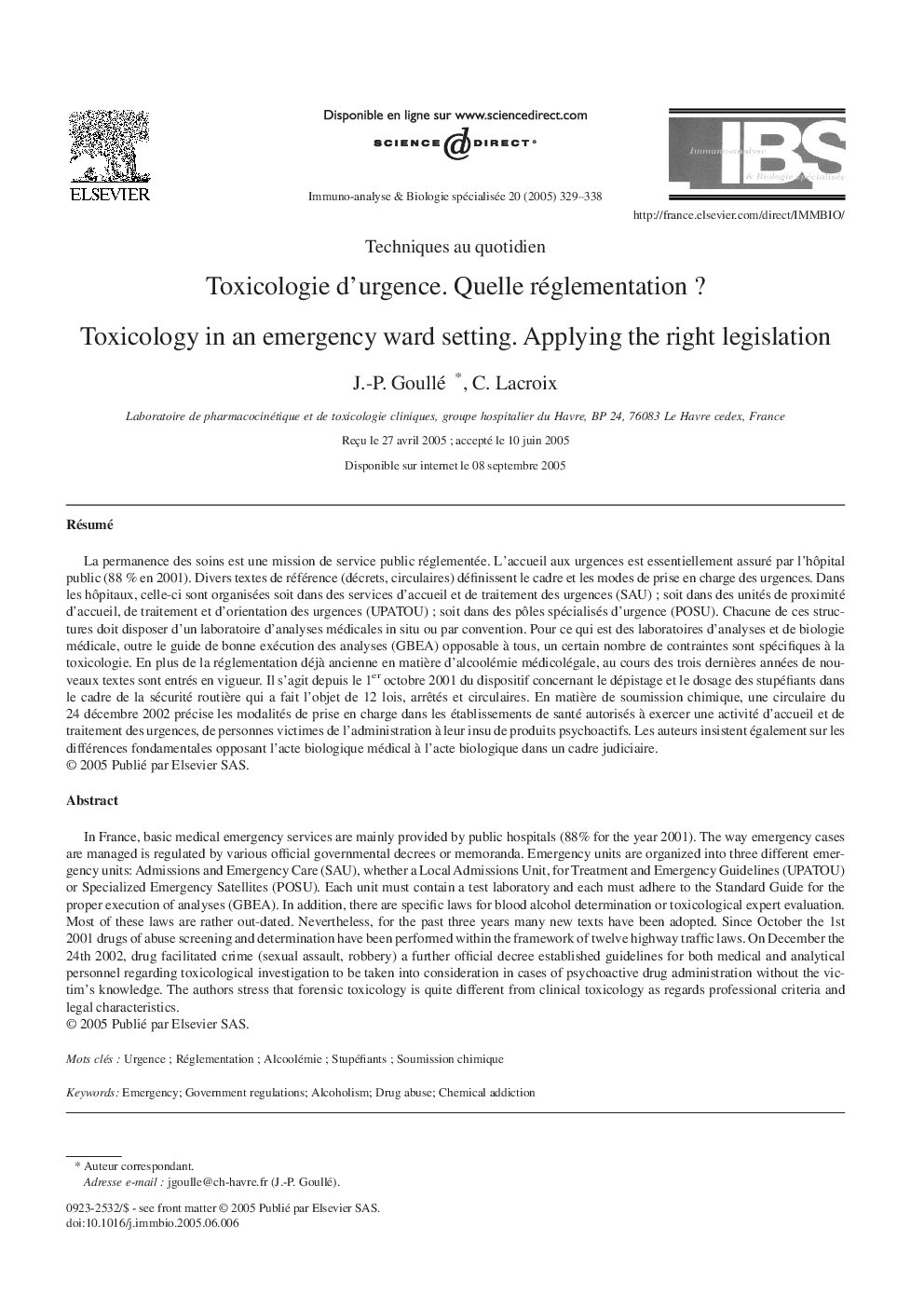| Article ID | Journal | Published Year | Pages | File Type |
|---|---|---|---|---|
| 9912928 | Immuno-analyse & Biologie Spécialisée | 2005 | 10 Pages |
Abstract
In France, basic medical emergency services are mainly provided by public hospitals (88% for the year 2001). The way emergency cases are managed is regulated by various official governmental decrees or memoranda. Emergency units are organized into three different emergency units: Admissions and Emergency Care (SAU), whether a Local Admissions Unit, for Treatment and Emergency Guidelines (UPATOU) or Specialized Emergency Satellites (POSU). Each unit must contain a test laboratory and each must adhere to the Standard Guide for the proper execution of analyses (GBEA). In addition, there are specific laws for blood alcohol determination or toxicological expert evaluation. Most of these laws are rather out-dated. Nevertheless, for the past three years many new texts have been adopted. Since October the 1st 2001 drugs of abuse screening and determination have been performed within the framework of twelve highway traffic laws. On December the 24th 2002, drug facilitated crime (sexual assault, robbery) a further official decree established guidelines for both medical and analytical personnel regarding toxicological investigation to be taken into consideration in cases of psychoactive drug administration without the victim's knowledge. The authors stress that forensic toxicology is quite different from clinical toxicology as regards professional criteria and legal characteristics.
Keywords
Related Topics
Life Sciences
Biochemistry, Genetics and Molecular Biology
Cell Biology
Authors
J.-P. Goullé, C. Lacroix,
